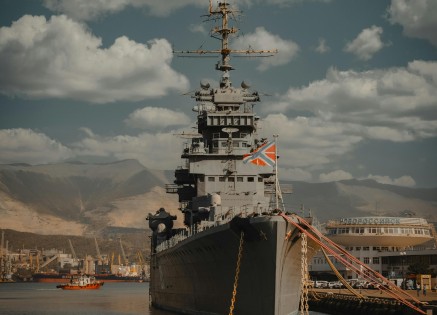Copyright © 2026 lmitac.com All Rights Reserved. Contact - Terms and Conditions - Privacy Policy - Quality Policy - Become an instructor - Vacancies - Sitemap
London Maritime Academy is a trade name for London Premier Groupversion: 2.9.0
London Maritime Academy is a trade name for London Premier Group

Posted On: 6/4/2025, 9:48:34 PM
Last Update: 6/4/2025, 9:48:34 PM
The European Union seeks to develop a maritime security hub in the Black Sea region to fend off Russia and protect vital underwater infrastructure, including communications cables.
In this context, it intends to work with Georgia, Moldova, Azerbaijan, Ukraine, Armenia, and Turkey.
This decision follows Russia's ongoing war with Ukraine, in which Moscow targets Ukrainian shipping lanes and ports and transports its oil using a shadow fleet of outdated tankers to circumvent Western sanctions, raising concerns about environmental and maritime security.
Recently, in Brussels, EU foreign affairs chief Kaja Kallas told the media about this new strategy.
According to the strategy paper, the proposed hub would aid in improving situational awareness and concentrate on information exchange between partners about the Black Sea, including real-time monitoring from space and warning of potential threats and other activities.
As per Kallas, it would facilitate the development of regional infrastructure and improve military mobility, ensuring that troops and equipment are available when and where needed.
Nevertheless, it is unclear where the centre would be located, which countries would be involved, and how and where funds would be available to build it.
Some Black Sea countries have other goals and interests, even though the majority—aside from Russia—have good relations with the EU.
Although their applications are currently on hold, Georgia and Turkey are also candidates, as are Ukraine and Moldova, which are attempting to join the EU. Azerbaijan's relationship with the EU and Russia is complex, while Armenia has grown closer to the EU.

Turkey is a NATO member and is near the European Union. According to Stefan Meister, head of the Centre for Order and Governance in Eastern Europe, Russia, and Central Asia at the German Council on Foreign Relations, or DGAP, it has an interest in preventing the United States and other NATO members from entering the Black Sea, despite being a regional power.
He said that although it benefits from the western sanctions, buys Russian resources, and trades with Ukraine, Ankara tries to support Ukraine and oppose the Russian annexation of Crimea while not upsetting Moscow because it views NATO as a security threat.
Delegates enrolled in the Online Maritime Training courses will gain knowledge about hub ports, which are important locations for the transshipment and distribution of goods, especially in international trade. By linking different shipping routes and making it possible to move goods between different areas, these hubs help the flow of cargo.
The Black Sea, according to Meister, is central to European security and is essential for connectivity with the Middle East, Central Asia, the Caspian Sea, and the South Caucasus.
In summary, a meeting of ministers from EU member states and nations bordering the Black Sea is the next step, according to the European Commission, to discuss how to proceed with this proposal.
Read more news: